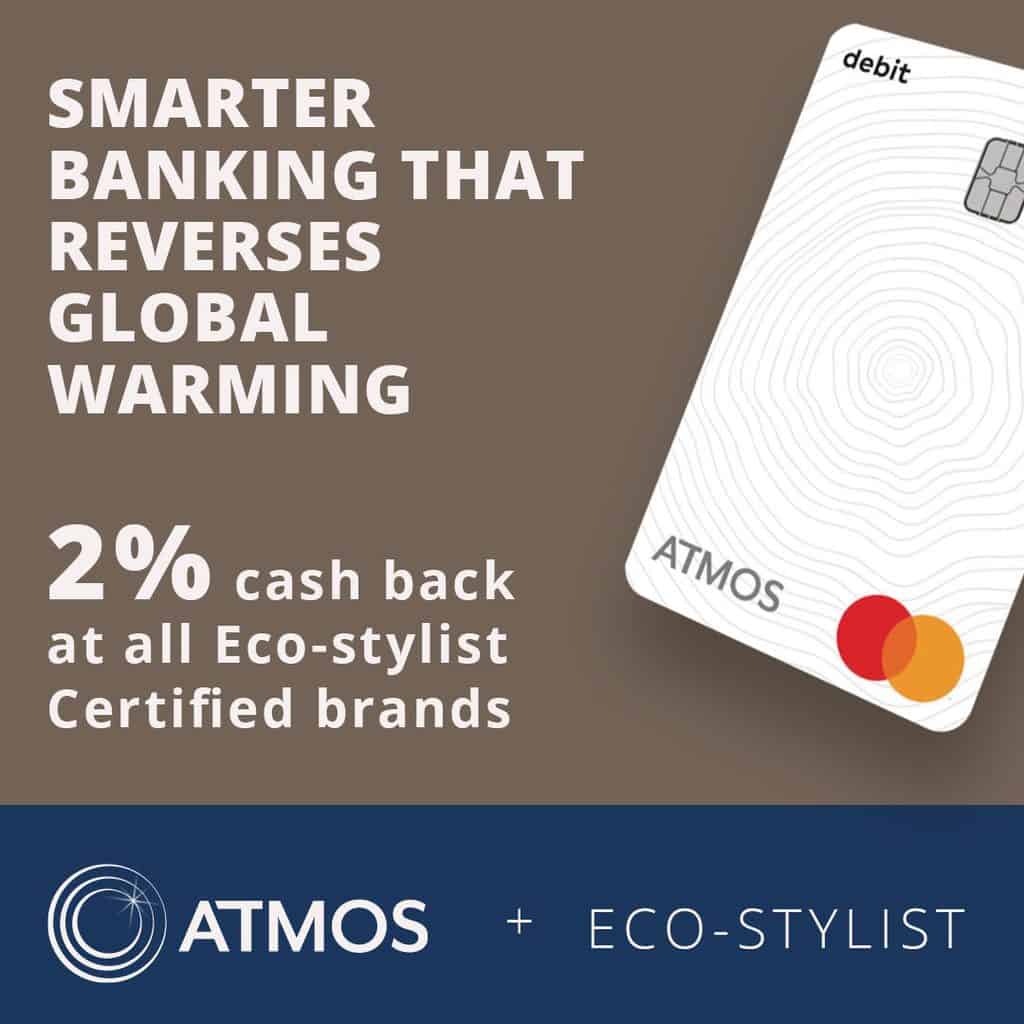
Eco-Stylist is reader-supported. If you make a purchase using our links, we may earn a commission. We only feature fashion brands that pass our sustainable brand criteria. Learn more here.
Mindfulness, community, sustainability. Canadian company lululemon is a sportswear retailer that has carefully crafted its brand so that these words come to mind when its name is mentioned.
They claim to find purpose in ensuring that their company ‘drive[s] meaningful change in the world’ they assert that ‘for over 20 years, we have worked to create value in our communities… we are on a journey to address social and environmental barriers to collective wellbeing.’ Whilst these aspirations may appear to demonstrate a genuine intention to be ethical and sustainable as a company, the truth of how committed they actually are is harder to ascertain than their website would lead you to believe…
Let’s dive into the important questions of whether lululemon should be considered a fast fashion retailer, and how sustainable and ethical they are, as well as taking a look at some of the controversies they have been a part of in recent years.
What is Lululemon?

Lululemon is primarily an athleisure brand that was initially founded as a yoga clothing retailer in 1998 but has branched out in the decades since to offer sports equipment and clothes, loungewear, and accessories. The company’s name has caused controversy for its conception; the founder Chip Wilson stated that he chose the name as he believed that it would be difficult for Japanese customers to pronounce, and this amused him. This xenophobic admission feels at odds with the community and wellness that this brand purports to encourage, and surely makes it harder to buy into the rest of the company’s proposed beliefs and claims.
Is Lululemon Fast Fashion?
At first glance, this leading apparel brand may not appear to be fast fashion, focusing specifically on activewear rather than following the wide ranging, fast changing trends that we traditionally associate with a fast fashion brand. However, they still produce clothes quickly and in bulk with new stock being added often to their website, and so they should still be considered a big part of the fast fashion problem.
What is Lululemon’s Environmental Impact?

In the past, lululemon has been criticised by activists and customers alike for their false advertising, branding themselves as an environmentally sustainable company when its practices don’t always match these claims.
The company has made itself many science based targets which are documented in their impact reports which are published each year. However, these reports show that the company is not on track for some of their major proposed goals, such as achieving preferred materials for all their products.
With a deadline of 2030 for the majority of these targets, time is beginning to run out for them to catch up.
How Transparent is Lululemon?

In the 2023 Fashion Transparency Index, the leisurewear brand scored 52%, which is better than some of their competitors but is still fairly low. They scored highly for their policies with 87%.
This makes sense, as lululemon does make a lot of information regarding their environmental and social targets readily available through their yearly impact reports. This is a great start, making themselves more transparent about their aims than other fast fashion brands.
However, for supply chain traceability and spotlight issues they score much lower with 53% and 40% respectively. This implies that whilst they have public targets in place, they’re less willing to show how they plan to fulfil these goals and fail to make important data surrounding the issues that are most pressing in 2023 public. This includes things like the company’s wage data, what practical steps they are taking to reduce overconsumption and waste, and how they plan to minimise their water footprint.
What Materials is Lululemon Using?

Lululemon uses >85% natural rubber for its yoga mats, and whilst this is arguably better than synthetic rubbers which is used by many other companies, it’s definitely not a perfect solution. As well as potential issues surrounding deforestation and biodiversity in the production of natural rubber, it’s also often mixed with other chemical components which are less environmentally friendly than itself.
Their ‘fan favourites’ range of sports leggings and tops, alongside many of their other clothing products, are made mainly from nylon and lycra, both of which are non-biodegradable products. These also produce greenhouse gases that are harmful for our environment.
Is Lululemon Carbon Neutral?
In summer 2023, 129 athletes signed an open letter addressed to the company and asked them to commit to switching from fossil fuels to 100% renewable energy sources. This was after the retailer’s carbon footprint was revealed to have increased by a staggering 60% since the previous year.
In their 2022 impact report, lululemon stated that they are working towards becoming a net-zero company, and have worked hard to put measures in place to facilitate this throughout their supply chain. Just over half of their key supplies were said to be ‘actively implementing carbon reduction roadmaps’ as of 2022.
This is a great start but leaves a lot more to be done.
Is Lululemon Ethical?

Who is Making Their Clothes and Where are They Being Made?
Lululemon publishes a list of their suppliers and subcontractors biannually which provides information about the facilities that are producing their clothes, such as location, number of workers, and gender statistics. This is great as it gives them higher accountability for their supply chain, however, the company has still been criticised for their lack of action in regard to ensuring the safety of their workers.
Labour Conditions
Lululemon is a member of the Fair Labor Association which helps companies to protect their workers, and claims to ensure the makers of their products are paid fairly. They promise that ‘we verify that all makers in our suppliers’ facilities are consistently paid, at a minimum, in compliance with legal requirements for regular work and overtime.’
This pledge is actually not as positive as it first reads. Lululemon is essentially saying that they ensure local minimum wage limits are upheld by suppliers and that their workers are paid on time. The latter of these statements is almost laughable; this is such a low bar for the company to be boasting about.
Even more worrying is the former admission; paying their workers a ‘legal’ wage does not equate in any way to their workers receiving payment of a proper living wage. This is an especially worrying statement since lululemon subcontracts the majority of their labour from countries that statistically have the worst workers’ rights, such as Vietnam, Philippines, and China.
Not only this, but in 2021 lululemon was one of many companies whose supply chain was found to be connected to companies that used Xinjiang cotton, from the Uyghur Region of China which is associated with forced labour and human rights violations.
Is Lululemon Vegan and Cruelty-free?

No they are not cruelty-free or vegan.
Whilst they don’t use many fabrics such as fur or leather in their products, they have made no commitments to becoming vegan or cruelty-free in the future.
They also use wool which is not certified. Their website claims that they are currently ‘transitioning to 100% non-mulesed wool’ which implies that this is not yet a given, which is worrying for their animal welfare.
To Summarise… Is Lululemon Sustainable?

Lululemon’s website would have you believe that they take the ethics and sustainability of their products into account at every step of production, creating eco-friendly activewear to last you a lifetime. It’s definitely not the worst offender when it comes to the fast fashion industry; they’re more transparent with their customers and charities than many competing fashion brands, and have committed to some targets and initiatives to improve. However, so far not enough has actually been done.
The blatant exaggeration of their claims is a definite case of greenwashing, with their portrayal of themselves as a sustainable company being misleading to put it nicely. There are many more environmentally friendly, ethical alternatives out there to choose from.
Overall, this company needs to focus on meaningful action rather than meaningless statements, finding alternative sustainable materials, ways to reduce greenhouse gas emissions and ensure worker health and safety, as well as fair pay, at all stages of their operations and supply chain.
Sustainable Alternatives to Lululemon
There are many great, eco-friendly, ethical, and affordable athletic fashion brands out there for you to discover. Here are just a few we’ve picked out for you.
Girlfriend Collective

Girlfriend Collective is a brand that ensures body positivity whilst also making sure their clothes are made in an ethical and environmentally responsible way. All their packaging and clothes are made from recycled materials such as scraps of fabric, plastic bottles, old fishing nets and they’re dedicated to making sure they work in an eco-friendly way!
Iron Roots

Iron Roots specialises in sustainable athletic apparel. They’re completely plastic free which is great! Instead they use completely natural materials such as hemp and eucalyptus. The company also takes part in projects such as The Ocean Cleanup, evidencing a real commitment to making change.
Groceries Apparel

This brand uses organic, recycled materials to create sustainable activewear you can feel good about. Groceries Apparel make all of their own products to ensure that their clothes are made in an ethical and sustainable way at every step of the manufacturing process.
Looking for More Ethical, Environmentally Friendly Brands?
Eco-stylist has over a hundred different brands that have been researched and rated to ensure they’re doing their best for the planet and its people so that you can look good without feeling guilty. Check out our shop to find out more and start dressing like you give a damn!

Ellie recently graduated from University of Sheffield after studying English Literature. She loves all things related to books and writing, as well as being interested in fashion and art.










